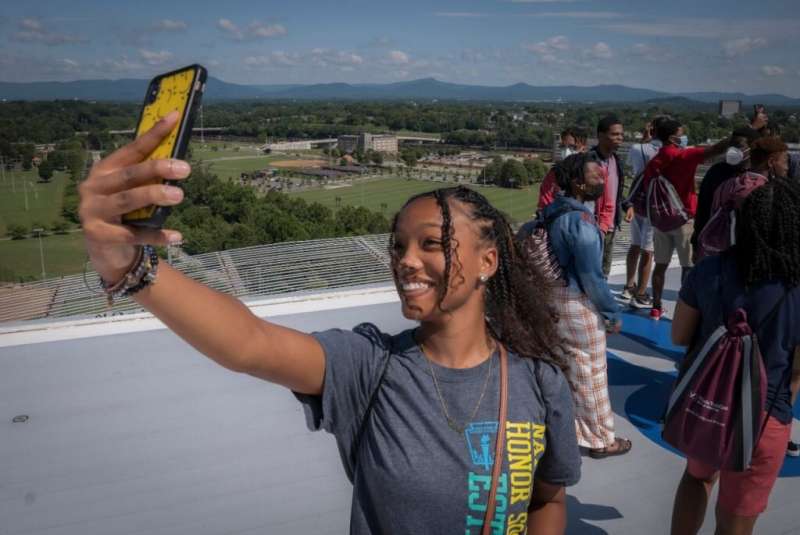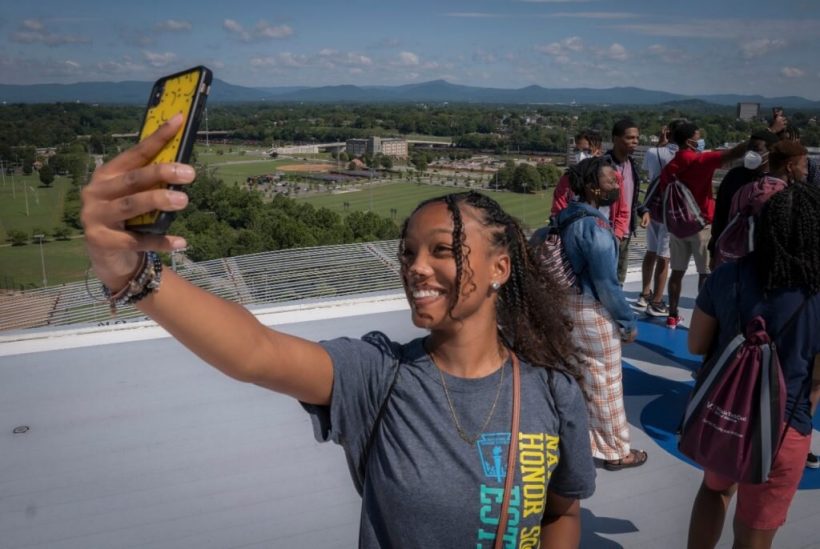
Leading national organizations focused on graduate medical education assert that losing the diversity gap is critical to ensure equity in medical education and health care quality. Nevertheless, evidence-based strategies and best practices to improve diversity, equity, and inclusion (DEI) in the biomedical workforce remain poorly understood and underused.
“We need to meet the needs of the people,” said Jed Gonzalo, senior associate dean for medical education at the Virginia Tech Carilion School of Medicine (VTCSOM). “Diverse patient populations need diverse health care to help them meet their best outcomes.”
Gonzalo was one of eight medical professionals who recently took a deep dive into what 29 graduate medical education programs, also known as residency programs, are doing to increase their diversity. The group did a qualitative analysis of applications for the Barbara Ross-Lee, D.O., Diversity, Equity, and Inclusion Award over a two-year period. The award, supported by GME’s governing body, recognizes exceptional DEI efforts in U.S. residency programs.
Based on a content analysis of these exemplary programs, the researchers identified 33 themes and placed them in broad categories such as recruitment, intentionally integrating DEI into the residency interview process, retaining residents who are underrepresented in medicine as faculty, using affinity groups as mentors.
“We have studies that show that minoritized individuals do better when they’re being taken care of by clinicians who look like them, have similar experiences, or even an understanding of what life is like for them,” said Azziza Bankole, professor of psychiatry and behavioral health, and chief diversity officer at VTCSOM. “Diverse learning environments help our trainees, our residents, our medical students, and students in other health professions as well.”
“The importance of diversity has to do with the quality of the learning environment,” said Arthur Ollendorff, associate dean of VTCSOM’s graduate medical education and professor of obstetrics and gynecology. “I believe that medical education is part of a social contract. It is our duty to train physicians who can meet the needs of their communities.”
As a physician for Carilion Clinic, Ollendorff is familiar with the health system’s educational mission that includes training of residents. Being immersed in intense clinical learning, residents are following the examples of their attendings who are doctors who have completed their training and often play an active role in the education of interns, residents, and medical students.
“The hope is that training in a setting that values diversity will make all trainees more in tune to the needs and best approaches to all the patients we serve,” Ollendorff said.
Recognizing the importance of DEI, VTCSOM has initiated numerous diversity programs in recent years, including MedDOCS, an after-school mentoring program for Roanoke high school students, Health Professions Enrichment Program, an educational outreach series for high-potential ninth and tenth grade students, the Diversity and Belonging series for students, faculty, and staff, and Mentoring Communities for faculty and students. In addition, the school partners with the Achievable Dream Academy, which gives students who are at risk of failure in school becuase of socioeconomic factors, a chance to succeed. The diversity, equity, and inclusion website has a complete listing.
“A lot of great work is being done here at VTCSOM,” Gonzalo said. “We hope programs and sponsoring institutions will look at the list of strategies in our study and say, ‘We could do this or that,’ which is great. We hope the study will spark ideas. What I think is critical is that implementing strategies should be done with a systematic and thoughtful approach so that they are deep-rooted and enduring.”
The strategies and best practices identified by the research group are intended to give graduate medical education programs ideas and starting points for developing their own DEI initiatives. Their report appears in JAMA Network Open.
More information:
Dowin Boatright et al, Strategies and Best Practices to Improve Diversity, Equity, and Inclusion Among US Graduate Medical Education Programs, JAMA Network Open (2023). DOI: 10.1001/jamanetworkopen.2022.55110
Journal information:
JAMA Network Open
Source: Read Full Article






